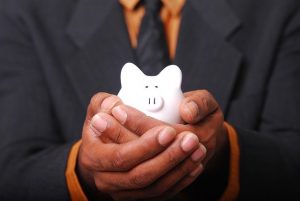
During the month of June, I wrote an article Down Payment or Investment Opportunities. It was my perspective on what to do with my savings, as I want to buy a home as soon as possible, but I also saw incredible opportunities to make money in the stock market.
Review a previous post
I thought I would revisit this topic, but my mindset shifted a little bit. That’s not to say that I’m proceeding in a different way than I thought I would, but now I’m thinking about it differently.
In that post, I said that I wanted to save $25,000 (I think) for a down payment, and wanted to do it in 4 years.
That meant that I would have to set aside a decent chunk each month to make that a possibility. The caveat to that is I would forego many chances to put money to work in the stock market.
Saving money for a down payment versus actively participating in the market is not the smartest financial decision (in my opinion), but in terms of what’s best for my family and for my psyche, this is the right move.
Because I have conviction in my decision now, my “regret” for not participating in the market has gone away.
When I first made the decision to save for a home instead, I often felt regret because the opportunities to make money were so great. Just from when I wrote that post (June 17) to now, the S&P 500 index ETF (SPY) is up 7.5%.
But I know this is the right choice, so I’m better able to focus my efforts on this goal. I’m eating out much less, I reviewed my budget to see where I could save more, and I’m finding bargains or buying second-hand items where I can.
Rainy day
While we are on the topic of saving money, I want to stress the importance of having some set aside for a rainy day.
As we’ve seen over the past few months, life can get pretty ugly. Now economic and humanitarian events of this scale don’t happen very often, but that’s not the point.
What I’m trying to convey here is that life is unpredictable. You don’t know what’s going to happen, or when. You don’t know how bad it’s going to be, so it’s important you have something set aside if things do get bad.
What’s more, it’s clear that the majority of businesses and corporations don’t have hardly any money set aside when disaster strikes. We like to think that if we put our time and energy working for a company, that they’ll take care of us when the time comes, but it’s clear now that most businesses won’t do that. They’ll protect the bottom line, and that’s that.
Obviously, not every company is like that, but I think it’s safe to say that the majority of organizations operate in this fashion.
Now, I do believe that this event will change how businesses operate. They’ll back away from the lean and mean operations, and start focusing on supply chain redundancy, as well as paying a little more for the security of their products and their people.
Be prepared
What I’m trying to say here is you need to look out for yourself and your family first. Sometimes, it’s necessary to forego big vacations, big expenses, or take out.
I think there’s room to be optimistic but also plan for the worst. I think it’s necessary to do both.
Living a life full of optimism is great, but you become a deer in the headlights when something bad happens. Taking the other side of things, being pessimistic, turns you into a cynic, and that has to be a depressing way to live.
Find room for both. Expect the worst, hope for the best, and save for a rainy day.
Related reading:
Everything You Need to Know to Set Up Your Own Emergency Fund
My name is Jacob Sensiba and I am a Financial Advisor. My areas of expertise include, but are not limited to, retirement planning, budgets, and wealth management. Please feel free to contact me at: jacob@crgfinancialservices.com